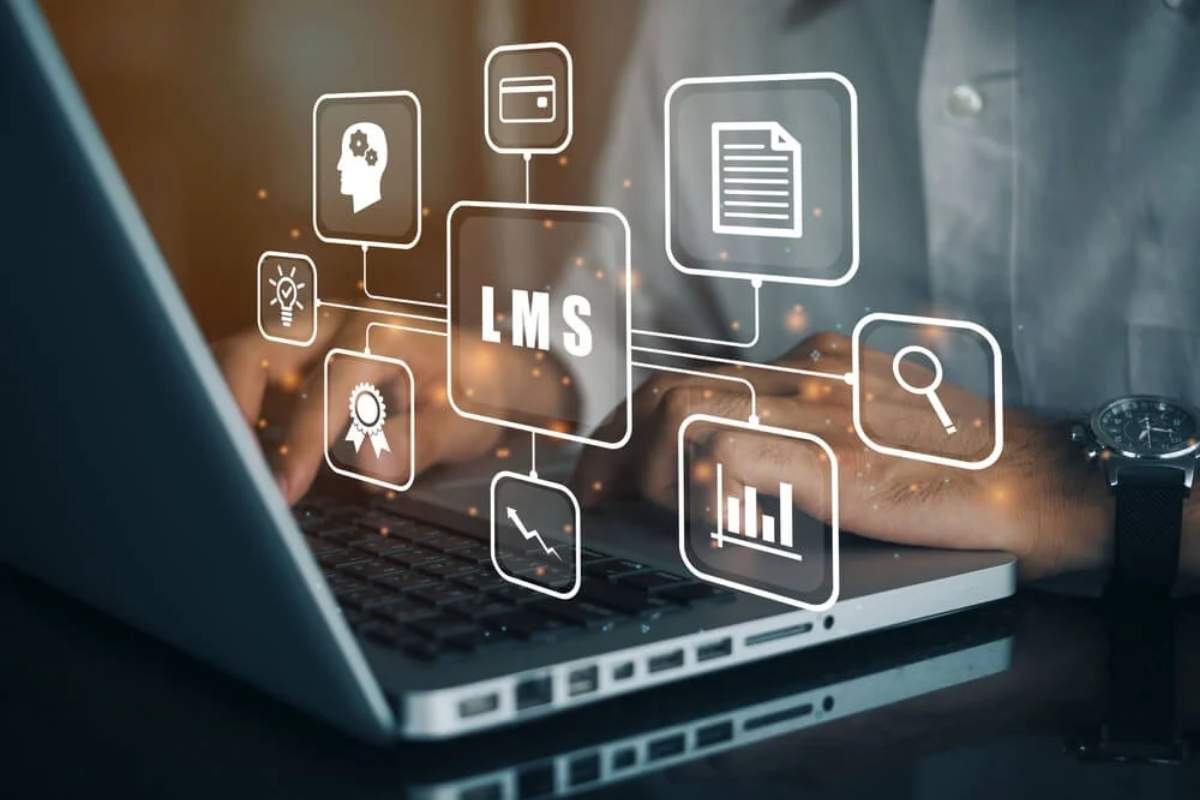In today’s fast-paced world, where digital transformation is reshaping various industries, the importance of Learning Management Systems (LMS) cannot be overstated. An LMS is a software application designed to administer, document, track, report, and deliver educational courses, training programs, or learning and development programs. With organizations and educational institutions increasingly turning to online learning solutions, understanding the fundamentals of LMS and its benefits is crucial.
What is a Learning Management System (LMS)?

A Learning Management System (LMS) serves as a centralized platform that allows educators, trainers, and organizations to create, deliver, and manage learning content. It provides an interactive environment where learners can engage with course materials, track their progress, and collaborate with instructors and peers. From corporate training programs to university courses, the versatility of an LMS makes it a vital tool in the modern learning landscape.
Key Features of Learning Management Systems (LMS)
Learning Management Systems (LMS) come equipped with a variety of features that enhance the learning experience. Here are some essential functionalities:
- Course Management: LMS platforms allow administrators to create, organize, and manage courses easily. Educators can upload learning materials, such as videos, quizzes, and assignments, and set deadlines for completion.
- Tracking and Reporting: One of the significant advantages of an LMS is its ability to track learner progress. Instructors can access detailed reports on course completion rates, quiz scores, and time spent on each module, enabling them to identify areas where learners may need additional support.
- User Management: Learning Management Systems (LMS) provide tools for managing users, including registration, role assignment, and progress tracking. This feature is particularly beneficial for large organizations with diverse training needs.
- Mobile Compatibility: With the rise of mobile learning, many LMS platforms offer mobile-friendly interfaces. This ensures that learners can access course materials anytime, anywhere, promoting flexibility and convenience.
- Integration Capabilities: Learning Management Systems (LMS) can often integrate with other software solutions, such as human resources management systems (HRMS) or customer relationship management (CRM) tools. This integration streamlines processes and enhances the overall learning experience.
Benefits of Learning Management Systems (LMS)

The adoption of Learning Management Systems (LMS) comes with numerous advantages for both learners and organizations. Here are some key benefits:
1. Enhanced Learning Experience
By providing a centralized platform for learning, an LMS enhances the overall educational experience. Learners can access diverse resources, such as videos, articles, and interactive quizzes, fostering a more engaging learning environment.
2. Cost-Effectiveness
Implementing an LMS can significantly reduce training costs. Organizations can save on travel expenses, printed materials, and venue rentals by transitioning to online learning. Additionally, LMS platforms allow for easy updates to course content, ensuring that training remains relevant and up-to-date without incurring additional costs.
3. Scalability
Learning Management Systems (LMS) can easily scale to accommodate a growing number of users and courses. This scalability makes LMS an ideal choice for organizations experiencing growth or for educational institutions expanding their course offerings.
4. Improved Compliance and Reporting
For industries with strict compliance requirements, an LMS can help organizations maintain accurate records of training and certifications. The tracking and reporting features of LMS enable organizations to demonstrate compliance with industry regulations and standards.
5. Personalized Learning Paths
Learning Management Systems (LMS) allow for the customization of learning experiences. Educators can create personalized learning paths based on individual learner needs, ensuring that each participant receives the support necessary for their success.
Challenges and Considerations
While Learning Management Systems (LMS) offer numerous benefits, organizations should also consider potential challenges before implementation. Here are some factors to keep in mind:
1. Initial Setup Costs
Although LMS platforms can lead to long-term cost savings, the initial investment in software, training, and implementation can be significant. Organizations should carefully evaluate their budget and plan accordingly.
2. User Adoption
For an LMS to be effective, learners and instructors must be willing to embrace the technology. Organizations should invest in training and support to ensure that users can navigate the platform confidently.
3. Content Quality
The success of any Learning Management System (LMS) hinges on the quality of its content. Organizations must prioritize the creation of high-quality, engaging materials that resonate with learners.
4. Technical Issues
As with any technology, technical issues can arise. Organizations should have a plan in place for addressing potential problems, including access to technical support and regular system updates.
Future Trends in Learning Management Systems (LMS)

As technology continues to evolve, so too will Learning Management Systems (LMS). Here are some trends to watch for in the coming years:
1. Artificial Intelligence and Machine Learning
The integration of AI and machine learning into LMS platforms has the potential to transform the learning experience. These technologies can analyze learner data to offer personalized recommendations and insights, helping educators tailor their approach.
2. Gamification
Incorporating gamification elements into LMS can enhance learner engagement. Features such as leaderboards, badges, and interactive challenges can motivate learners and promote friendly competition.
3. Virtual and Augmented Reality
As VR and AR technologies become more accessible, their integration into LMS platforms could create immersive learning experiences. These technologies can simulate real-world scenarios, providing learners with hands-on practice in a safe environment.
4. Microlearning
The trend of microlearning, which involves delivering content in short, focused segments, is gaining traction in LMS. This approach caters to learners’ busy schedules and enhances retention by presenting information in digestible formats.
Conclusion
In conclusion, Learning Management Systems (LMS) have revolutionized the way education and training are delivered. With their myriad features and benefits, LMS platforms offer a flexible, cost-effective solution for organizations and educational institutions alike. By embracing this technology, educators can create engaging, personalized learning experiences that meet the needs of today’s learners. As LMS continues to evolve, staying informed about emerging trends will be essential for maximizing their potential in the learning landscape.
By understanding the critical role that Learning Management Systems (LMS) play in modern education and training, organizations can position themselves for success in an increasingly digital world.
Did you find this article helpful? Visit more of our blogs! Enterprise Chronicles









